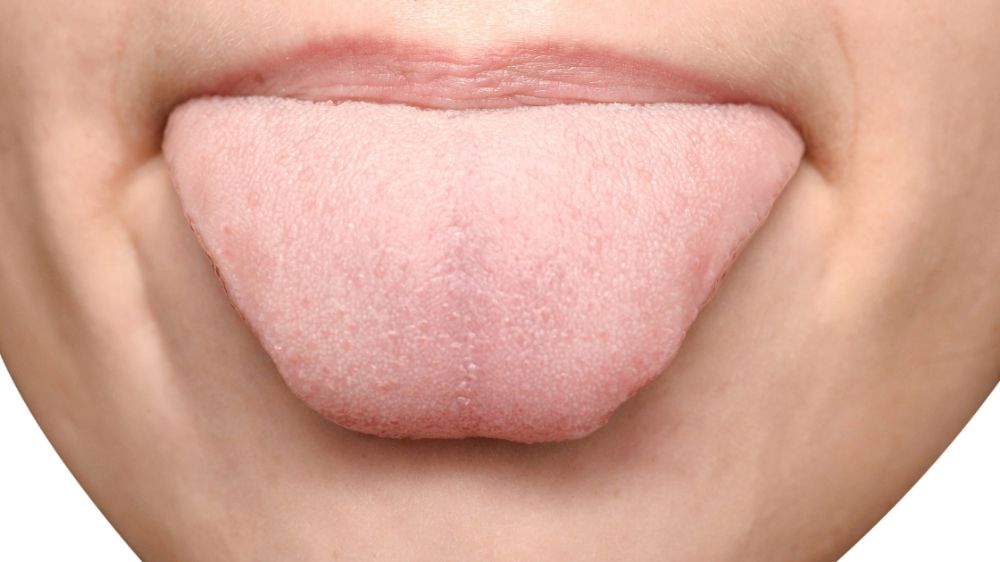Got a Pale Tongue? What it Says About Your Health
Do you have a pale tongue? If so, it could be a sign of a health problem. Read this article to find out how a tongue reading can give you clues into your overall health.

Traditional Chinese Medicine practitioners have used tongue diagnosis for over 2000 years. They believe that the color of your tongue indicates your overall health. It can help you understand your body and what is going on inside of you. A pale tongue can be a sign of a number of health problems. Traditional Chinese medicine has a number of different explanations for why a tongue might be pale.
Why is tongue diagnosis so important in TCM?
The tongue is an extremely important organ in Traditional Chinese Medicine, as it is used for diagnosing and treating a variety of conditions. The tongue is coated with a thin film that can tell a practitioner a great deal about the patient's health.
For example, the color, texture, and shape of the tongue can provide clues about the patient's constitution, energy levels, and current state of health. In addition, the practitioner can use the tongue to feel for abnormalities or areas of congestion or inflammation. By assessing the condition of the tongue, the practitioner can develop an individual plan of treatment for the patient.
What Does it Mean If Your Tongue is Pale?
There are many different meanings to having a pale tongue. It could mean that the person is not getting enough blood flow to their tongue, which could be a sign of anemia or another health condition. It could also mean that the person is not digesting their food properly, which could be a sign of a digestive issue.
- One explanation is that a pale tongue is a sign of yin deficiency. Yin is the principle of cold, wet, and dark in Chinese medicine. A person with yin deficiency will often feel cold and have a pale tongue.
- Another explanation is that a pale tongue is a sign of blood deficiency. Blood is the principle of nutrition in Chinese medicine. A person with blood deficiency will often feel tired and have a pale tongue.
- A third explanation is that a pale tongue is a sign of qi deficiency. Qi is the principle of energy in Chinese medicine. A person with qi deficiency will often feel tired and have a pale tongue.
- The tongue is a muscle, and you can tell how much chi is in your body by the way it moves. Your practitioner will be able to tell if your blood is stagnant or flowing properly.
Your tongue is the first line of defense against disease. It can help you figure out what's going on in your body, such as an allergic reaction, infection, or an unhealthy diet.
A tongue with a pale and dull appearance may be a sign that your blood flow is low. It may be a symptom of anemia or other blood disorders. A tongue with a bright red color is usually a sign of good circulation. A tongue that is moist, but not too moist, is also a sign of good blood flow and circulation.
The tongue can turn grayish when the body doesn't have enough blood flowing through it. Poor circulation can also cause the tongue to become purple or dark-colored. These symptoms are similar to what happens with someone who has less blood circulating through their body.
The color, shape, and texture of the tongue can give you a hint about your health but remember, it's not the treatment. It is the first step toward diagnosing bodily imbalances, and only the start of finding harmony in your mind and body.
There are many possible explanations for a pale tongue, so it is best to consult with a healthcare professional to determine the root cause.
What Causes a Pale Tongue in TCM?
Some possible causes of a pale tongue in Traditional Chinese Medicine (TCM), include poor blood circulation, dehydration, poor diet, and low energy levels. If the cause of the pale tongue is not addressed, it may lead to other health problems.
It may also stem from dehydration. When the body doesn't have enough water, it takes it from other places in the body, including the tongue. This can make the tongue look pale and dry.
Traditional Chinese Medicine and Pale Tongues
One of the key diagnostic tools in traditional Chinese medicine (TCM) is the examination of the tongue, which can provide information about the state of the body's internal organs. A healthy tongue is generally pink and smooth, while a pale tongue may indicate a deficiency of blood or energy. Other symptoms associated with a pale tongue include fatigue, poor appetite, and a feeling of coldness.
If you have a pale tongue, it's important to address the underlying cause. A poor diet, dehydration, or low energy levels can all be improved with some dietary and lifestyle changes. If the root cause is a more serious health problem, such as poor circulation, it's best to consult with a healthcare professional.
Western Explanations for a Pale Tongue

One possible western explanation is anemia, which is a lack of red blood cells. It could also be due to a vitamin B12 deficiency. A pale tongue can also be a sign of a serious medical condition, such as liver or heart disease.
How to Improve Tongue Health
1. Identify the Cause of Tongue Problems
In traditional Chinese Medicine (TCM), tongue problems are caused by imbalances in the body's Yin and Yang. When these energies are in balance, the tongue appears pink and healthy. When they are out of balance, the tongue can become red, swollen, and covered in spots.
2. Address the Cause of Tongue Problems in traditional Chinese medicine
Traditional Chinese Medicine (TCM) believes that tongue problems are caused by a disruption in the flow of energy, or qi, in the body. This can be caused by a variety of factors, including stress, poor diet, and environmental toxins. TCM practitioners use a variety of techniques to address the root cause of tongue problems and restore the flow of qi. These techniques may include acupuncture, herbal medicine, and dietary therapy.
3. Use Herbs and Acupuncture to Improve Tongue Health
There are many herbs and acupuncture points that can be used to improve tongue health. For example, ginger is a great herb for improving circulation and clearing toxins. It can be eaten fresh or in a tea. Stimulating certain acupuncture points is also great for improving tongue health.
4. Make changes to lifestyle habits
Try eating a balanced diet of fresh fruits and vegetables, whole grains, and lean protein. Avoid sugary foods and drinks. You can also practice good oral hygiene by brushing your teeth and tongue regularly. Try a tongue scraper to remove bacteria and plaque from your tongue. Finally, you can drink plenty of water to keep your mouth and tongue hydrated.
Summary
In Chinese medicine, the tongue is used to diagnose illness. A person’s tongue color, shape, and texture can indicate the state of their health. It can help a practitioner determine if a person is ill, and can help them determine what kind of treatment is best for that person.
A pale tongue can be a sign of many different health problems. Tongue diagnosis is not a substitute for medical care. If you are worried about your tongue health, consult with a traditional Chinese medicine practitioner or a Western doctor. There are many ways to improve tongue health.
Get your daily dose of wellness delivered straight to your inbox. Sign up now for our newsletter.
Disclaimer:
These statements have not been evaluated by the Food and Drug Administration. This product is not intended to diagnose, treat, cure, or prevent any disease.
The content is purely informative and educational and should not be construed as medical advice. Any opinion expressed should not be treated as a substitute for professional medical advice. By using this website, you accept our Terms & Conditions and Privacy Policy. We cannot guarantee the accuracy of the information presented at this site. This article is not intended to be used as a substitute for the diagnosis and treatment of any health problem or to prescribe any medication or other treatment. You should consult with your health care provider before starting any diet, exercise, or supplementation program, before taking any medication, or if you have or suspect you might have a health problem.